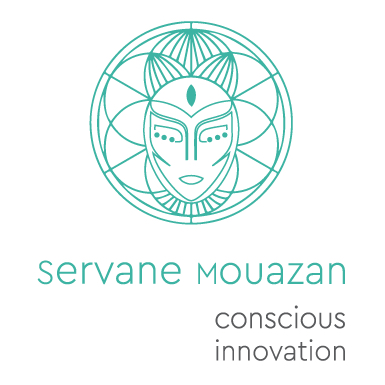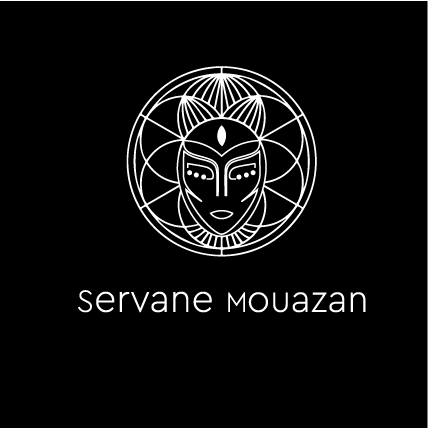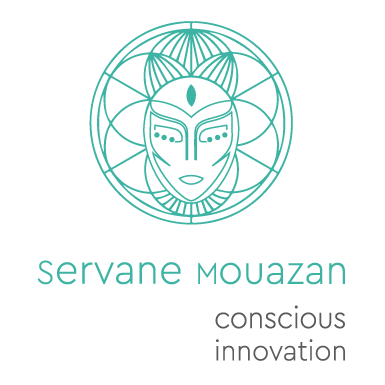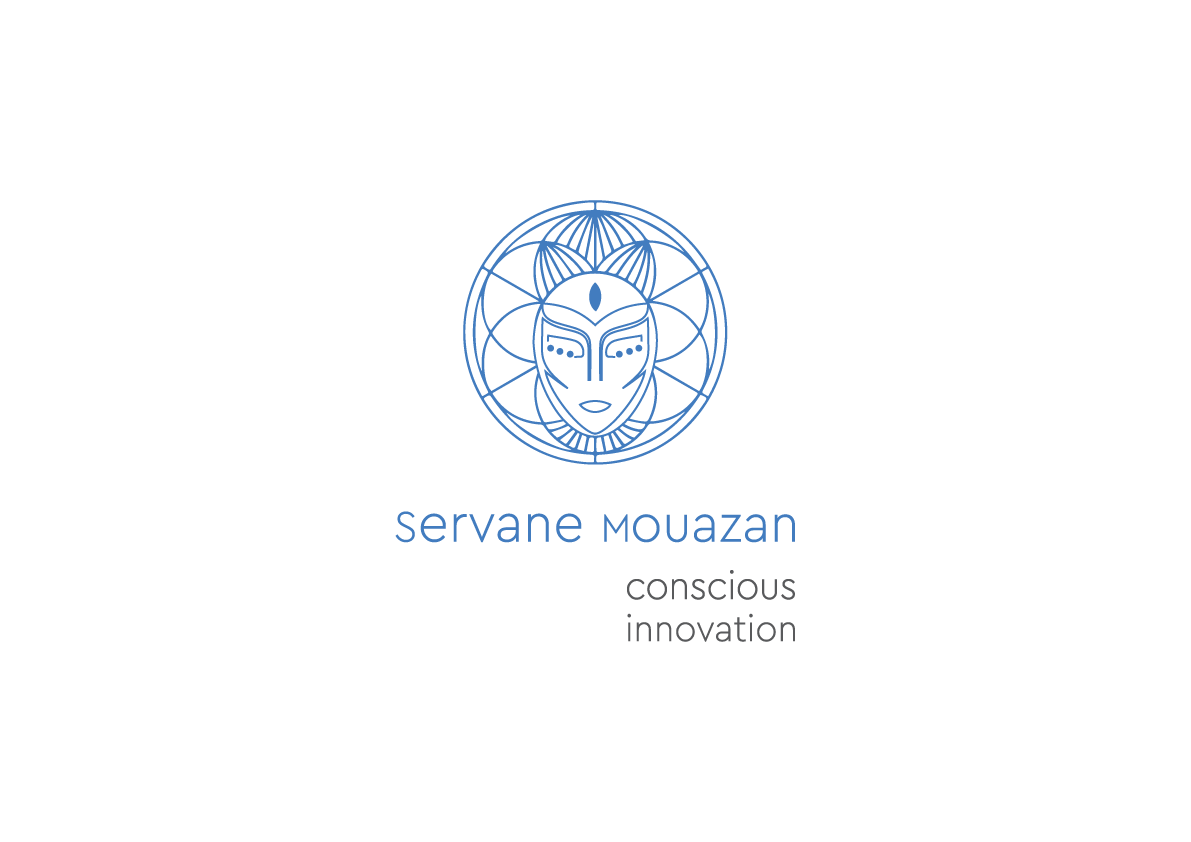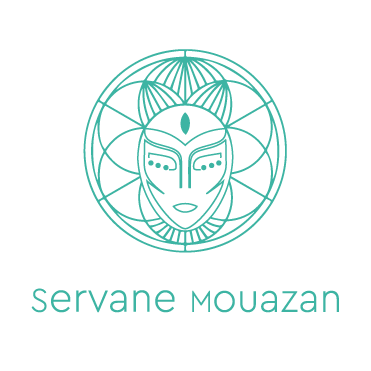Investing in the Cathedrals of the Future with Kevin Withane
In this episode of Be & Think in the House of Trust, I am listening to Kevin Withane, the Founder and Managing Partner of Diversity-X VC, a community and VC firm in the making that supports underestimated founders solving real-world problems and making a positive impact in their communities and the world.
Kevin qualified as a barrister and has a background in corporate law. He has worked around the world over the last two decades, including at private practice law firms, quasi-governmental organisations, SMEs, and most recently at an FTSE 250 company.
He is a passionate advocate for building a sustainable world and for diversity, equity, and inclusion. The insights he shares in this episode will also get you thinking about how we can refocus our perspective and start prioritising the long-term consequences of our decisions.
Highlights from this episode:
(01:45) At 45, I feel like I’m just starting to make my impact
(06:58) The Basílica de la Sagrada Família (Build cathedrals of the future)
(09:54) Knowledge is an open source
(12:37) A world of short-termism
(15:59) Having a BHAG
(17:43) We often miss the glory of our own actions
Useful Links
Kevin Withane on Linkedin https://www.linkedin.com/in/kevinwithane
Diversity X VC https://www.diversityx.vc/
{{footer}}
Transcript
Hello everyone. Welcome back to the House of Trust, the house of trust, which is aimed at people who love to invest in social change. Um, through our explore our, our exploration, we have a look at, uh, what trust looks like, the stories we create in ourselves and around ourselves to generate valuable relationships and conditions that generate and ignite impact.
And my guest today is Kevin with aim, the founder of Diversity X, um, who supports underestimated founders. And you're gonna tell us more about that in a minute. You also, you've been a purpose led, um, senior lawyer and ethics and compliance executive. You've worked across sectors, you've worked and travel extensively in various countries.
So I'm so curious. To know more about you, Kevin, throughout all these experience, uh, what would you say your key contributions to the world? Uh, I think.
Uh, that's a hard one to say cuz my carbon footprint's been terrible, so that's not really contributed much. Um, but I'm trying a lot better in the last few years of not traveling at all, basically not leaving home. I think that's the best solution. I think I'm only making my impact now if I'm honest. So I hit 45.
I've hit 45 now, but I've been, I guess I've been doing diversity X for a year and a bit, but I'd say I'm only starting to, if I'm honest, I feel like I'm only. Make an impact now. It's not because I didn't try before. I just don't feel like I, I don't really know. Uh, I think some people might say, well, you, you're underestimating, uh, yourself or your contributions.
But I genuinely feel I found purpose now, and that's to help and support underestimated founders make a positive impact in the world. Um, I think I have skills to do that. And that's my purpose in life is to, to help them. Ultimately, my goal is because I need a world that's better for my three mixed race children.
Yeah. One where they can actually breathe the air and they have a fair opportunity at work and success. And they're not hindered on the basis of any characteristic, like the fact that they're my children and so they're convinced by definition or that my. because of her gender or if they ever decide they are gender fluid or whatever, or, or their sexuality.
Like, I just can't, I can't have a world with that. So I'll do everything I can now to create the world that they have a fair chance of being successful and whatever that means to them.
Oh, that's lovely that we have that in common too. I've got also a mixed race child who's, um, 12 and a half going on 80 or 18 at time, , and who's got very strong views about the world.
So yes, and I, I, I see how working on creating infrastructures and, and systems that are more suited for people to flourish. Esto needed. Kevin, can you tell us more about what an underestimated fund. Is,
yeah. I think most people use the term, and you'll see it in loads of reports, um, are there's not enough funding to underrepresented founders.
Mm-hmm. , what does that mean? Cause for me, I meet so many women founders, so many people, color founders, disabled, LGBTQ plus neurodiverse, older. There's many, many of them. So I don't think they're underrepresented. Think they're underestimated. And the whole reason behind that, the underrepresentation in my view, comes in the opportunity to equitable access to capital.
And I think the data speaks for itself. And there's always data. There's always another report that says, for instance, in the venture capital world, venture has a diversity issue. Mm. Of course it does cuz the numbers speak for themselves and you know, if you're, you're in venture capital, numbers mean a lot, but it's not like it's a new thing, like it's been going on for decades.
So this is where I think diversity X and I come in is. We're sort of done with talking, done with the reports actually, and we'll use the reports to back up our statements. Mm-hmm. , but ultimately the reports just say there's a problem and they might quote a few people saying we need to do something better, but in reality is it isn't happening.
So you have to make that change now. And that's what Diversity X is trying to do is build something that's generational because we. Naive to think that this is gonna just change overnight. Mm-hmm. , there are, what I do see is there are a lot more newer. Sort of venture firms coming up who are trying to address this space in different ways and really being, trying to be creative.
And I think you have to be creative. Mm-hmm. . And I think that's really positive cuz also you need choice. Like you can't just have one diversity x and that's it. That's the only, that if you are a female founder, you should go to, cuz you're like, cuz you know, the reality is we can't, it is still a business that's trying to do something.
Mm-hmm. , we can't fund everybody because, you know, it's finite and quite frankly, the problem has now become a problem that's now an opportunity cuz it's so big. And I, I've been asked sometimes like, well who's your competitors to this? Like, who I, I turn around and say, and maybe this is gonna sound really stupid.
I don't believe I have a competitor, cuz firstly, we're mission driven, so our aim is to serve underestimated founders and help them create or have access and opportunities to access capital. Mm-hmm. . So whether it's us or somebody else supporting them. It doesn't really matter. Our mission gets ticked off.
But putting that aside, there isn't enough money in the world that's gonna be given to us to support this problem. So, you know, the pie is so big that there's room for many, many firms like. Diversity X.
So this is like, I remember I had a was I had a, a talk with, um, Melissa St. And Rachel Armstrong. We were talking about it.
What do we need to really as an attitude, eh, to really change that this big thony issues of lack of diversity, lack of, uh, investment, um, their future, their bio future is, They're there. They need a lot of money to, to make things happen. And we were talking about that, that notion of cathedral building, having the cathedral, building thinking.
That means that ev a lot of us are going to build a, to bring a stone and contribute to a building that ultimately we might not even see accomplished or finish. But that'll connect us all through. Worship for some, uh, and, and, you know, and entertainment for others, but also purpose and, and will contribute to make things change over time.
And that
is, that's a great analogy. In fact, it reminds me, cause I think I used, I used this example similar is the reference to in Barcelona, and I never say this right, but la familiar. Uh, Yeah. Yeah.
But it's still family. Yeah, family.
It's still been built hundreds of years later. Yeah. It's still, it's never been finished, so it's not even under, um, renovation.
It's just been built. It's still been built technically. Right. Cause it's never actually been finished. Yes. So I think that's, that's exactly what it.
Oh, wonderful. So we need other people, we need other funds. We need other, other nuance funds, you know, purpose, et cetera, to, to build this, uh, famili, , this cathedral type of building.
And I wonder, What is it that you most learn about, you know, human relationships in, in your work as a lawyer and advisor and non-exec and all your, all your roles? What is it that you learn about human relationships to or to, to, to make you, to help you work towards this goal?
Yeah, actually I've learned a lot from outside of this world that contribute to this and it's about people.
Uh, and that started with a lot of inflection on myself and the person, Uhhuh, I felt I was inside, but was not outside Uhhuh. Um, and involved changing myself to, to get to where I am today. But that is, people need to feel, they need to understand purpose and what they're, and. What their purpose is. Not everybody understands that fully, but how they contribute to that pur to an overall purpose, uh, they need that sense of contribution, that sense of belonging, the sense that they've been heard.
They don't it, and it's never about agreement. It's about, you've heard me, it's never even about, you know, like the mansplaining thing or I had this problem , my wife was like, just listen to. I don't need you to solve the problem. Right. I need you to listen to me telling you what the problem is. That's it.
That's it. That was it. And I had to do a lot of work on myself. Like, don't be the person who tries to solve somebody else's problem. Yeah. Cause they, they don't always need that. Sometimes they, and that's what the great thing I think in like working with startups is it's their business. Even as event, you know, we might invest, we may have a stake.
Hopefully, ultimately we're buying into somebody else's vision of what the world is and where they see the world going and what they're trying to build to support that vision. And I think it's about trusting that and people need a sense of trust and you can't feel belonging and you can't sell, feel inclusion without genuine trust.
You know, I think about then the organizations I've worked for. Mm-hmm. and you know, you can have friends. You have colleagues, acquaintances, but I actually think to myself, how many people do I trust? And I don't mean like, I mean the people that you know are lifers, like they are there for life. Whether you go in our organization, I think about some of the organizations, you know, I know that in 20 years time, I probably won't remember many.
Oh, there was this person I worked with, but what was their name? What was their name? What was their name? There'll be others that I still talk to regularly and, and that's because of trust and I think they're the things that I then, I've taken into diversity X, like, well, we have to have safe spaces. Trust, I believe in, like, I believe we're an age of collaboration, so when I started out my.
Particularly as a lawyer, knowledge is power. We're we're, you know what? Lawyers really do solve knowledge. We're knowledge industry. And so knowledge being power, it was proprietary. I believe. Now I use this phrase, uh, knowledge is open source now. Like if you don't share knowledge, you're probably gonna be left behind.
Whereas if you look to share knowledge, look to learn from other people, you're gonna develop ideas. Things are gonna actually get better. You're gonna be more innovative, more creative, you're gonna solve problems. And like I think during a pandemic that sort of was born out, like you see these from a, on a macro scale.
Countries working to collaborating with the private sector to get medication, developed A drug, essentially a vaccine, right? Whether you like, agree or disagree with it as a feat of engineering or whatever you wanna call it, innovation. Fantastic. Like there were some base lines there, but they come out, came out with a drug, which essentially they deployed within, what, nine months?
A, a year? If so. Yeah. Yeah. That is incredible. In any, so like when you think about how long, like the, the, the drug development process is, it's years, right? Mm. Seven, 10 years. When we talk about like long term capital investments in that and. Here we are when people come together and that's what, yeah.
It sounds to me like it's power with not power over that really wins in this
case.
I think so. I generally believe so.
So I wonder, what do you think might be getting in a way of establishing more trust between, between people in the, in the sector, for instance, between the provi fund finance providers and and funds recipients?
We still operate in a world of short termism. Even, even when in a venture game, I see like it's, you know, you're looking like building a fund model, for instance.
I'm looking at it going, oh, well we've gotta deploy. We raised, we're gonna spend this amount of time raising. Then we're going to, we're only gonna get paid for this amount of time. Then we can't charge management fees once we've deployed or there's a lower management. So then how do we continue to survive ourselves as human beings?
Yeah. Feed everybody else who are helping. And so it's your, you continue thinking in short terms. Yeah, and I actually think we need to sort of reflect and not everything needs to be short term and it not, but reward and it's about being able to step back from that and look at the reward system in life in general holistically uhhuh.
So we're taking, so we take take giving people the opportunity to do things which actually do. We're asking for culture change. We're ingrained, like these are systemic issues, like most things we're dealing with, it's systemic, but you know, you look at 14, 500 CEOs, right? They're, they're remunerated on quarterly results, right?
Ultimately, it's like, what are you delivering on this quarter, this quarter, this quarter, this quarter, this quarter? Mm-hmm. . Then you're going. Separately, by the way, there's this looming problem over here now. It's not, you can't touch it and you can't feel it quite, although, you know, heat waves are telling us maybe we can feel it.
Uh, yes, but you can't, you know, it's, and it's such a macro, like it's such a grand scale issue, right? Climate, yeah. Uh, That it's very hard to conceptualize and then put it down and go, how does this affect my short term results? Because I get rewarded on this. And so how many of them have got the courage to put their head on the line because that's what it takes, and go to the investors.
Look, this is for your long term benefit too, because. In the long run, those companies that do take the changes, make the changes to make society better, but will be the ones that still survive exist. They will build that loyalty. So we can take the short term gains now, and there's nothing wrong with that if that's what you think are, but what's gonna happen to the next generation?
Right? What's gonna happen to them? And it's your generation, your people. We have to try and build this inclusion and you know, that whole rising tide thing, it's in some sense, is it true? It can have you, I look at it from the VC and I use the flip side, the rising tide. So you know, more underestimate people have been funded compared to 2009 to today.
Mm-hmm. , since you've got more and more money. But percentages remain the same because everybody. Right, and Tide lifted everybody, including the same people. And so there still wasn't the equity, but we all benefit. And I think that's, that's what, that's what we're trying, I, that's what. My mission is to help us all benefit.
So I wonder if we take, again that metaphor, the, uh, the, the, that cathedral. Instead of building sheds, we should all start thinking of building businesses or funds, or invest with that kind of cathedral. Spirit in mind. I wonder what, what, what, what's, what more of that story would you like to be able to tell?
And what would be the ingredients? What would you technically bring in to make this kind of approach work?
Um, I think there's a thing in called, uh, in marketing called having a b a G. Okay. Which I can't remember what it stands for. A big hairy. Ambitious something goal. All right. Or big, hairy, ambitious goal.
I can't remember who quoted it, but it was some marketing guru. Um, but I generally believe in, in the sort of the, the, the ethos around that and the sort of vision that's like, think big like a cathedral, uhhuh, but cathedral doesn't just appear. It's then a series of lots of small steps. So what's the first thing?
Lay the ground. Prepare the ground. Yeah. And you start digging down. You dig downwards before you build upwards. Right? Because you need to put the foundations in, because if you're building something so grand, so big. That you want to be stand the test of time. It needs to have solid foundations, right? So you go downwards first before we, then you lay that and then step brick by brick, by brick, by brick, you start going upwards, and that ultimately takes time.
So it's having that great big idea and then making a small. Each day, each hour, each minute towards achieving that, eventually one day you'll step back and you, uh, you'll look at it and go, wow. Well, that
will stand in your will. That will stand in your will to your, to your, your descendant. Say one, one day you'll step back and you see that granny build.
I wonder, I wonder, given what could be the, um, The reward as milestone along the way for people to feel a bit satisfied to see some sort of results. What, what
form could that take? I think firstly there's the human element. Mm-hmm. , and most people don't see it. Like, you know, when you live with people like kids.
Mm-hmm. . And you are with them every single day, right? Mm-hmm. . So you don't necessarily notice them growing and shooting up apart from then they're closed. Like, oh. All of a sudden it's like, oh, you need a new shirt? Cause like
grandma comes around three weeks later, she hasn't seen, she's like, wow, you've shot shopping. We like really . You're like in person. I didn't notices that. And it's that, that perception, right? So we sometimes, Involved in that moment in tasks. Mm. What we're trying to do, we don't necessarily see the glory. Of what we are doing other people do.
And it's having that humbleness to take that on board because like most people are like, when you tell me I've done something really good, oh no, you get the real jerks who like, course I, no. But then you get the people like, oh no, no, no. And it's like, actually you can just appreciate you have done something good.
And that's, that's a good feeling. Um, I also think people know just intrinsically, they, they feel. They, that's, and that's, you know, going back to that purpose of wanting to have contribution. A sense of contribution. That's what it's, mm. Like, you know, when you go to work, you've done a great day's work. You feel it, but you leave work and you feel like I'm tired or whatever.
But you're like that. I did, I worked hard today, but I felt a sense of contribution. Right. So you need to be in an environment that creates that opportunity too though.
And I think it should be opening that, that notion and that approach. To funders that the reward might take different shapes, different forms, that feelings and emotions are part of the story too.
And that the, the rewarding milestones are are not just finite. They're part of a continuous journey.
Yeah. And taking that continuous journey. So many people, and I'm meeting founders and investors, I, what's the, we're looking for the next unicorn. Looking for the next unicorn. Looking for the next unicorn.
It's not that many, to be honest. If you're looking for the next unicorn, then by definition unicorn doesn't truly exist. There's shop with, is there anybody unicorn? Then what? What great, what goods it? The fact is you just need businesses and people. Go, I've taken this from zero to whatever. Mm-hmm. And it's helped me make a living.
It's maybe inspired some people. Mm-hmm. along the way to then maybe do something slightly different, but maybe even like, can financially can get a unicorn state. Cause it's all it is, is a. Is an arbitrary number we could have. We could just turned around and go, you know what? Today we're changing it to be a unicorn.
The only way to get unicorn state is now you have to make a trillion dollar company. Right? Like we could, it's an arbitrary number 1 billion US dollar. Like where did someone just coined it and said that was it? Right? There's not much love in there. There isn't, and I think it's all about creating lasting, sustainable businesses.
And the only way to do that is one, you've gotta look after. You've gotta look after the people, both within your business and outside your business who are stakeholders. Take care of them all and ensure that you look at the long term. Obviously survive for the short term, but look to the long term like delivering, keeping, delivering.
And your business can change as well. It doesn't have to stay the same.
So Kevin, I'd like to invite you to ask a question that people in the audience will take away. And do the homework with . So maybe if you think of fellow investors that might not be as yet, you know, to your point, having matured in your, in your way, in that, in that sector, then I wonder what question would you invite them to think about so that they, they contribute to these cathedrals?
Yeah, I would say, uh, I would ask. How often do you switch off the system one thinking and switch on system two thinking? System one is the sort of, um, you know, you are, it's where like biases come from, like it's the speed of thinking. Mm-hmm. , and here's an example. If you ever looked at Facebook, they have those little puzzles where the letters all mm-hmm.
most people can, if you've ever seen it, like people can read those, right? Like you can just look at it and it's, it's all about recognition. So most people do that and that's how we get through life. Like otherwise you, you need to process everything really slowly to then get to an answer, but that leads to biases and it leads to people like the people I support and represent be missing out, right?
Because there isn't enough data around that because we haven't invested in those people, so we can't get the data to show how successful they could be. Mm-hmm. System two think it makes you stop. Slow it down. It's almost like slowing down. I, I think of it like slowing down time. Mm-hmm. and then make a decision.
And you might come to the same conclusion as you did before. You might go, do you know what, I'm gonna try something slightly different because I'm not speed thinking. So, um, Encourage people to think about how they do that and how often they do that, cuz it generally is a skill.
Wonderful. So we're gonna leave that question to our audience here.
How often do you switch off to system two? Pause and see what it generates. I wonder what their answers will be. Thank you so much, Kevin for participating, uh, in this, uh, virtual house of trust and, and thinking out. About your work and your contribution and, and this big topic that is trust and all the things around that.
Thank you so much.
Genuine pleasure. Thank you.
Have you felt your organization needed to adjust its level of empathy lately? What would happen if you learn to pause and create a space where your team members gave one another the opportunity to be seen and heard or even recognized? What does it take to do that?
Join me in the next episode of Be and Think in The House of Trust. We will talk to Siria Show, who is an applied organizational neuroscientist will explore nine things you can do to. Empathy, scarcity in your organization. The show is available to listen to anywhere you can find podcasts. So for more insights, events and resources and even jobs for people who love to invest in social change, you can head to my website, SAV moza dot dakota uk, and subscribe to my regular conscious innovation update.
Goodbye for now.
